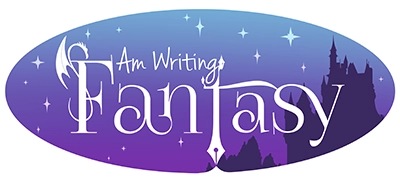Today we have a guest post from Jacob Pitts! If you have a problem with reviews or writing your own reviews for other authors, take a look below!
“This author is a hack.”
“I’m rating this a one star because my book arrived late.”
“I would almost give this book a four star review were it not for a few typos. Get an editor!”
Look familiar? If you peruse online reader reviews for books, you’re bound to run into a few that look like the above examples. Or worse.
Reviews are so important to authors. They help with pre-order sales, trade shows, catalogs, book marketing, etc. If you’re reading this post, you are likely an author or aspiring author, and hopefully eager to support your fellow scribes by giving helpful reviews. It is my hope that this post will help us keep a couple of things in mind when reviewing a book, whether on Amazon or personal blogs.
As someone who loves to consume stories, I read multiple reviews for books and movies before buying them. I’m on a tight budget and want to be sure to get the most bang for my buck. Sometimes I read blogger’s or critic’s opinions, but I’m usually more interested in what the average audience member has to say. And I love it when someone takes the time to write a thoughtful review, listing what they liked or disliked about the book or movie. However, it is frustrating when I run across a review that’s all negative or comes off as entitled or whiny.
Why do I get frustrated? Oh, I’m so glad you asked…
First off, it is rare that a book is all bad. Even if you find it terrible, I believe there are still good things that can be gleaned from it. For example, I am one of those that disliked The Last Jedi. As a Star Wars fan, I had several problems with it. My biggest issue with it was I found it boring. Yeah, even though the Porgs were cute.
Now, I rarely review any piece of entertainment I dislike. But if I were to write a review on The Last Jedi, I wouldn’t just express my dislike for the movie. There are redeeming qualities to it, regardless of how little I enjoyed the film. For one, I believe it had some of the best cinematography in the series. And, I applaud the filmmakers for trying something different than what was expected, even if I wasn’t entertained.
Of course, there’s nothing wrong with simply sharing an opinion. This is the internet after all. And ultimately, the way we experience stories is almost completely subjective. However, we are writers and storytellers. We want to be supportive of one another when leaving reviews, but hopefully, we also desire honesty from our writer peers as well.
I’m not a professional critic. I’m not here to teach you how to properly critique a work of fiction. There are whole classes and courses you can take to learn proper critiquing and review skills. But if you are interested in upping your review writing game, I believe there are only two things you need to keep in mind to write a thoughtful and fair review.
Your expectations. And the author’s intent.
That’s it. It is so simple, yet time and again I see so many reviewers completely neglect these things.
Managing your expectations can be tricky. Say you’re a fan of fantasy and the familiar tropes, styles, and expectations that come with that genre. And when you feel one of those elements is missing, or not done to your satisfaction, it can be very disappointing. Or maybe the marketing seemed to set certain expectations for the story that the book didn’t deliver for you.
Before you hurry to access the nearest internet portal and blast out a devastating review, did you consider that maybe the author intended to subvert your expectations? Just because you didn’t get the story you wanted, is that really a failure on the author’s part? Granted, if they marketed the book one way, yet gave you a different story than what the advertising set up, maybe they do deserve to be called out.
Ok, but what if the story was as advertised, and you still didn’t enjoy it? Obviously, that’s fine. We all have different tastes, and not everything is going to click for us. I’m not saying don’t leave negative reviews. But don’t leave negative reviews because you had unrealistic expectations that the author could never fulfill. At least make sure you understand the author’s intent, to the best of your ability, before you write your takedown of their work.
Author intent also includes considering the prose.
Prose styles vary wildly from book to book and we all have a style or styles that we enjoy more than others. Some prefer more workman style prose, blunt and to the point. Others prefer more flowery vocabulary, full of colorful descriptions, ambiguous themes or being sesquipedalian (someone who overuses big words!).
Prose can be another tricky element to judge. Technical execution aside, does the prose help or hinder the story or the characters? If it works with the story that the author is telling, and brings the characters to life, then I would consider that a success. However, if you’re constantly distracted by the prose to the point of missing key plot points or character interactions, we can probably draw the conclusion that wasn’t the author’s intent.
Obviously, I don’t believe any of us are writing reviews quite as extreme as my examples. At least I hope not!
I understand that I might be preaching to the choir with this article. But we all live busy lives, with various cares and concerns that can easily cause us to forget even the most basic facts. Hopefully, this article reminds you to keep the author’s intent in mind, while also being aware of our expectations of their books. If we do that, I believe we will be able to effectively write helpful reviews for both authors and potential readers.









0 Comments